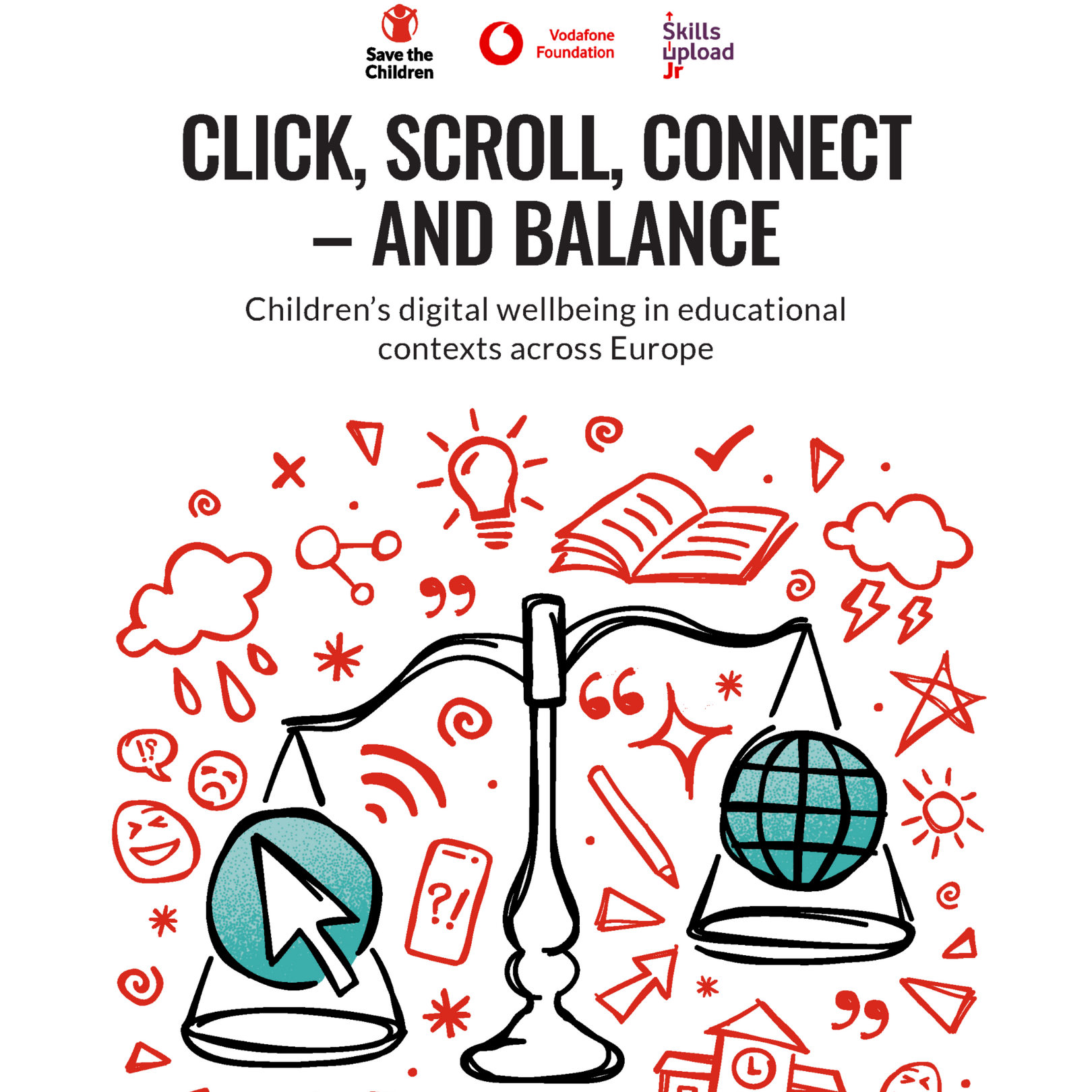Click, scroll, connect – and balance: Children’s digital wellbeing in educational contexts across Europe

As part of our research pillar in this partnership, this study examines children's digital wellbeing in Europe, assessing current systems, policies, and practices to identify gaps and opportunities for creating safer and more inclusive digital environments.
Among the findings from this study, we see how young people in Europe are increasingly exposed to digital stressors like cyberbullying and disinformation, leading to increased anxiety and depression. As digital environments become central to children’s lives, it's crucial to tailor support to their evolving needs and experiences.









